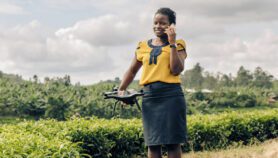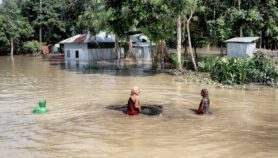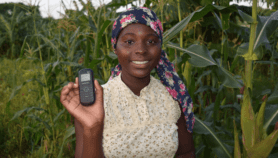By: Cecilia Rosen
Send to a friend
The details you provide on this page will not be used to send unsolicited email, and will not be sold to a 3rd party. See privacy policy.
[BUENOS AIRES] The process of adding new Internet domain names to existing ones, such as .com and .org, has left Latin American governments at loggerheads with a pair of US corporate giants over two of the proposals, in a dispute that is expected to be ruled on in July.
Several governments in the region strongly oppose the applications by online retailer Amazon to own new domain name .amazon and outdoor equipment firm Patagonia to take control of the name .patagonia.
SPEED READ
- Retailers Amazon and Patagonia want exclusive use of the domains .amazon and .patagonia
- But South American nations want the terms protected against commercial interests
- Internet body ICANN is due to decide on the issue in July
The next decisions on issuing permissions to exclusively use new ‘generic top-level domains’ (GTLDs) are due to be made by the US-based Internet Corporation for Assigned Names and Numbers (ICANN) in the next few months.
ICANN is a non-profit private organisation that develops policies and manages ‘unique identifiers’ such as names and numbers in Internet addresses. The way it is governed requires the public and private sectors, as well as technical experts, to be treated equally when passing decisions.
Patagonia and Amazon hope to obtain the exclusive use of the referred domains as part of their commercial strategies.
But Argentina, Brazil, Peru and all the members of the Amazon Cooperation Treaty Organisation, which work to harmoniously develop the Amazon Basin, argue that the two disputed domain names have sufficient geographical and cultural importance and so should be protected against commercial interests.
They argue that handing the domain names to the companies could lead to the domains being erroneously associated with Amazonian countries and communities in the Patagonian region, which are not represented by the companies, and could hinder the nations and local people from using the Internet domain to support conservation and social development.
"The firm Amazon doesn’t have any geographic, cultural or historical link to our region," Miguel Palomino, director for science and technology at Peru’s Ministry for Foreign Affairs, tells SciDev.Net. "We are not questioning the brand, but pointing out that a geographic name that is the heritage of the Amazonian countries cannot be an object of an Internet domain."
Peru and Brazil have met Amazon representatives, with an aim to resolve the conflict, but, according to Palomino, the company has no intention to withdraw the application. "So, a dialogue between the two parties is impossible," he says.
ICANN declined to comment on this, saying that the proposed domains are still under evaluation. The organisation is expected to announce a decision in its next meeting, to be held in Durban, South Africa, in July.
Amazon did not reply to SciDev.Net‘s requests for comments. Patagonia’s spokesperson says: "We are confident that our .patagonia application is in full compliance with the application requirements as set forth by ICANN".
Olga Cavalli, Argentina’s representative at ICANN’s Governmental Advisory Committee through which nations provide input to the body, says that the guidelines for potential GTLD applicants are vague when it comes to domains that refer to geographic regions, and only specifically protect country names.
This, she says, "allows companies that own registered brands to advance on GTLDs, thinking that they can keep them as if they were brands. But, clearly, a domain and a brand are very different things."
Virgilio Almeida, secretary for IT policy for Brazil’s Ministry of Science, Technology and Innovation, says it is important that ICANN decide after considering all stakeholders.
"ICANN represents companies and communities but also governments," he says. "Its decision on this will have great impact for other geographic names and will be an indicator of how it will act in the future."
Neither Argentina nor the Amazonian governments say they plan to take legal action against the US companies.
"We are convinced that common sense will prevail and ICANN will agree with us," says Palomino.
In March, Alain Pellet, ICANN’s independent objector — an impartial expert on Internet legislation, appointed by the body who can object to applications on new GTLDs — also issued an objection to various proposed domain names, including .amazon and .patagonia.
And at the end of ICANN’s Governmental Advisory Committee last meeting, in Beijing, China, on 11 April, the committee urged the organisation’s board not to proceed beyond an initial evaluation of .amazon and .patagonia along with similar cases elsewhere, including .shenzhen, .persiangulf, .guangzhou, .thai, and .zulu.













